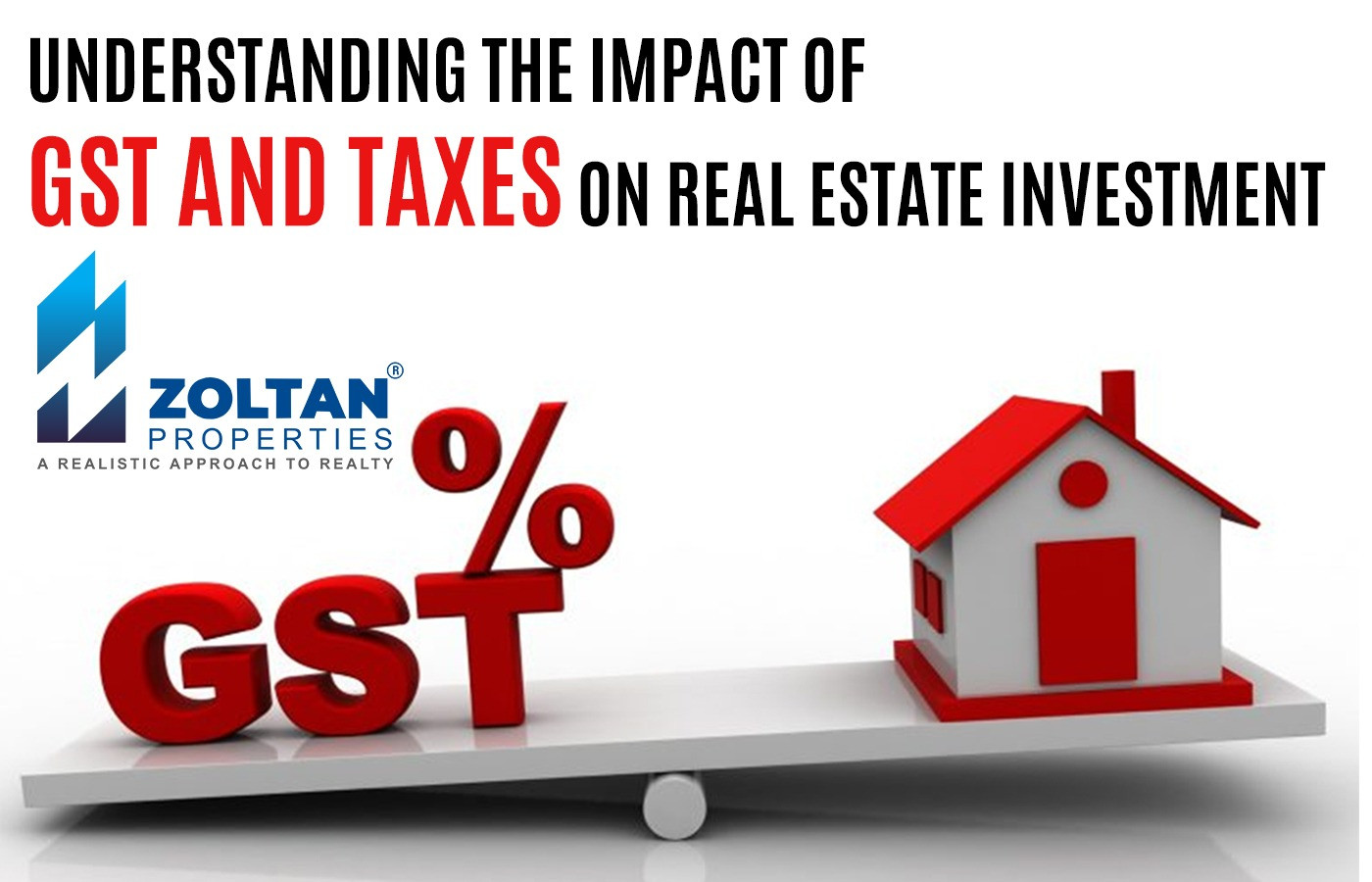Investing in real estate can be a lucrative venture, but it's essential to understand the various taxes and regulations that come with it. Goods and Services Tax (GST) is one such aspect that impacts real estate transactions significantly. In this comprehensive guide, we'll delve into the intricacies of GST and other taxes associated with real estate investment, helping you navigate through the complexities and make informed decisions.

Understanding Goods and Services Tax (GST) in Real Estate:
GST is a consumption-based tax levied on the supply of goods and services in India. In the realm of real estate, GST applies to the sale of under-construction properties and the leasing of commercial properties. Here's how GST impacts different aspects of real estate investment:
GST on Under-construction Properties: Under-construction properties are subjected to GST, usually in the form of a construction-linked plan. The GST rate for residential properties is generally 5%, while it is 18% for commercial properties. Investors should factor in these costs as they can significantly impact the purchase price.
GST on Sale of Commercial Properties: When selling commercial properties, GST may be applicable on the sale value. The GST rate is typically 18%. Investors should be aware of the applicable rate and include it in the selling price to avoid disputes.

GST on Rental Income: If you are renting out your property, GST is not applicable on the rental income per se. However, if additional services are provided to the tenants, such as parking, maintenance, or security, GST is applicable.
Input Tax Credit (ITC): One significant benefit of GST for real estate developers is the availability of Input Tax Credit (ITC).
Developers can claim credit for the GST paid on inputs such as raw materials, services, and construction equipment against the GST liability on the sale of properties.
This helps in reducing the overall tax burden on developers and may indirectly impact property prices.
Related: Discovering the Wealth-Building Potential: Real Estate Investment Solutions for Maximum ROI
Taxes and Duties on Real Estate Investment:
Apart from GST, several other taxes and duties come into play when investing in real estate. These include:
Capital Gains Tax:
Capital Gains Tax (CGT) applies to the sale of a property, and the tax rate depends on the holding period. Here are some of the key considerations while evaluating CGT for real estate investment:
Short-term and Long-term Capital Gains: Short-term gains (assets held for less than two years) are taxed as per the individual's income tax slab. Long-term gains (assets held for over two years) are taxed at a flat rate, usually after considering indexation benefits.
Exemptions and Reinvestment Options: Certain exemptions, such as investing the gains in another property or specified bonds, can help reduce or defer the tax liability. It's important to analyze these options to optimize returns and minimize tax burdens.

Property Taxes:
Property taxes are levied by local authorities and vary by location. Here are some key considerations while evaluating property taxes for real estate investment:
Valuation and Assessment: Properties are assessed by local authorities to determine their taxable value. Understanding the calculation method and regularly checking for accuracy is crucial to avoid overpayments.
Tax Rates and Due Dates: Property tax rates and due dates can vary depending on the location. Familiarize yourself with the local tax regulations to ensure timely payments and prevent penalties.
Stamp Duty and Registration Charges:
Stamp duty and registration charges are payable when transferring ownership of a property. Here are some key considerations while evaluating these charges:
Stamp Duty: Stamp duty is a state-specific charge paid on the property's market value during purchase or transfer. It's important to calculate this cost accurately when evaluating investment yield.
Registration Charges: Registration charges cover the costs associated with registering the property transaction. These charges are also state-specific and need to be factored into your budget.
Conclusion:
Real estate investment in India has been subject to various taxes such as GST, capital gains tax, property tax, stamp duty, and registration charges. It's important to have a comprehensive understanding of these taxes' implications to make informed investment decisions. By factoring in these taxes, investors can manage their expenses and maximize their returns in the real estate market. Seek advice from tax experts or professionals to ensure compliance with applicable tax laws and regulations.
Explore our next blog: Buying Property through Equated Monthly Installments (EMIs): All Essential Information You Require

 IN
IN
 France
France
 Germany
Germany
 Greece
Greece
 India
India
 Saudi Arabia
Saudi Arabia
 Spain
Spain
 United Arab Emirates
United Arab Emirates
 United Kingdom
United Kingdom
 United States
United States






